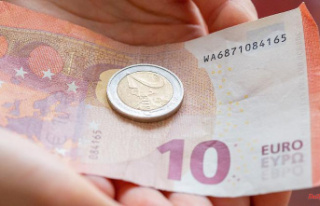Since 2015, the EU countries have been arguing about the distribution of responsibility for refugees: Border states such as Greece and Italy complain about the little help from landlocked countries. Now there should be a "historic agreement": a voluntary redistribution or co-financing.
According to French information, the EU states have agreed in principle on a voluntary redistribution of refugees in Europe. After consultations with his EU colleagues, French Interior Minister Gérald Darmanin wrote on Twitter that a "large majority" of member states had approved the new solidarity mechanism. At the same time, the protection of Europe's external borders should be strengthened.
Darmanin had submitted a six-page declaration for a "voluntary solidarity mechanism" to the interior ministers meeting in Luxembourg. The core idea is that those who do not accept migrants from particularly burdened countries such as Italy or Greece should pay a "financial contribution" to them or help in some other way. According to EU diplomats, around 10,000 people who came to Europe mainly via the Mediterranean will be relocated within a year.
Darmanin spoke of a "historic agreement" in the dispute that has been smoldering since the 2015 refugee crisis. In the coming days, the French Presidency wants to organize a "solidarity platform" together with the EU Commission. The question is which country takes in how many refugees. According to Darmanin, a good ten of the 27 EU countries had shown themselves to be receptive.
"Germany will definitely be there," Federal Interior Minister Nancy Faeser had promised in Luxembourg. She did not commit to a specific number of refugees.












